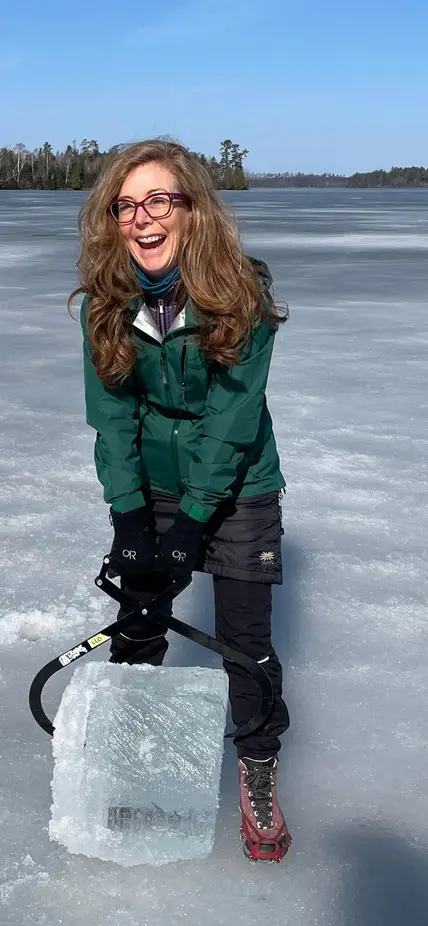Duct tape is a must. So are zip ties. Depending on whether you’ll be on site long enough for it to dry, Gorilla Glue might be another necessity. Oh, and pack as many buckets and sample bottles as you can fit in your gear, advises Carnegie Science aquatic ecologist Stephanie Hampton, sharing a rundown of all the absolutely essential items to bring on a fieldwork trip.
The Deputy Director of Carnegie Science’s Biosphere Sciences and Engineering division, Hampton has spent 18 years studying microscopic plankton in Russia’s Lake Baikal. These aquatic communities of animals and plants live in pretty much all water, everywhere around the world, and they form the base of a lake’s food web, because fish find them delicious. So they are a great way to measure ecosystem health, which is why Hampton is fascinated by them.
Baikal is the world’s oldest lake and larger than some European countries. Its extremely remote location in southern Siberia means that researchers can’t easily replace lost or forgotten items and advanced preparation is a must.
“When you get there, you’ve got what you’ve got,” Hampton says matter of factly, the one exception being locally sourced vodka, which is far more readily available than lab-grade ethanol for preserving samples and then taking them back to the lab for analysis with sophisticated equipment.
“I would say we always have in mind what is the minimum data that we need to gather in order to make this trip worthwhile and then we have as many redundancies as we can,” Hampton explains.
This often means having several pieces of equipment that are exactly the same or having two parallel ways to collect the same data. And it always means having as many backup plans as possible and bringing extremely useful, all-purpose stuff that can fix equipment when it’s failing. Hence the duct tape.

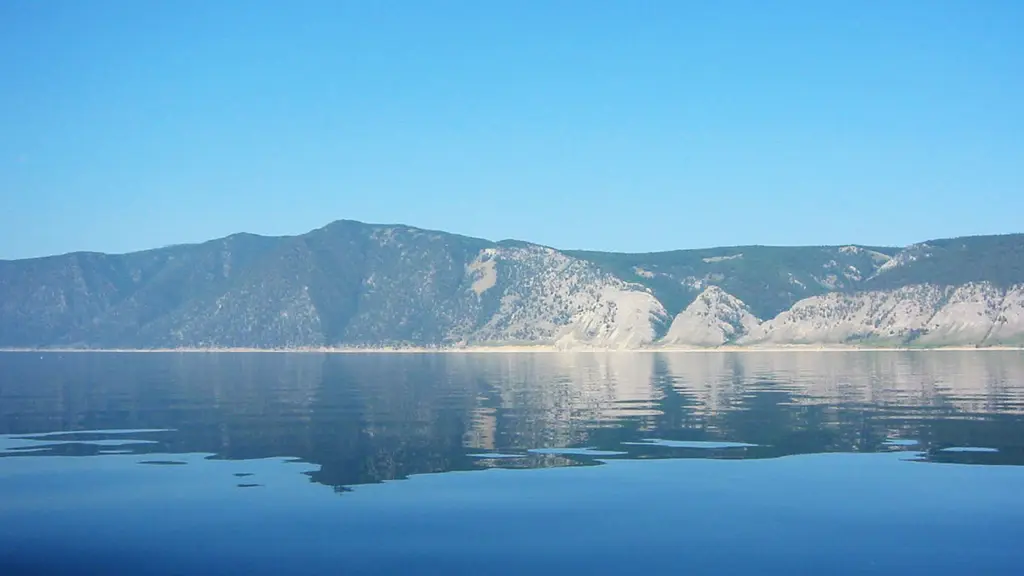
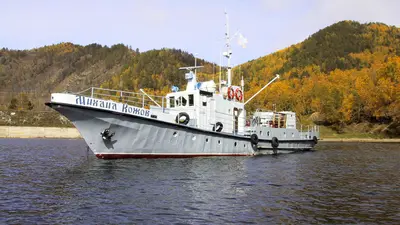
A boat on Russia's Lake Baikal
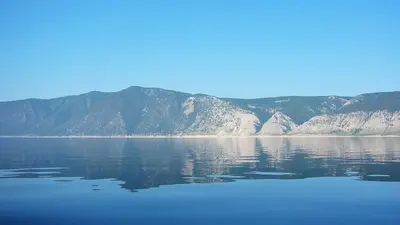
A scenic view of Lake Baikal
Another crucial part of fieldwork trip planning is testing absolutely each and every piece of equipment you’re bringing with you. Hampton, who works out of a suite of Carnegie labs and offices at Caltech, says the university’s head groundskeeper allows her to test sensors in the campus ponds.
In addition to her long-term interest in Lake Baikal—which is inaccessible right now due to geopolitical events—Hampton also works in mountain lakes in the U.S., including at various state and national parks, where permitting requires about six months of planning, versus a year to go to Russia, and even lakes on private land with the owner’s permission, which can be accomplished on a day’s notice if you’re lucky.
“Plankton are everywhere, so you really can go out to any pond around you and grab water if you need to,” Hampton says.
Despite this, she emphasizes the importance of safety plans, no matter how accessible a body of water may be, including making sure there are always people who know where she and her team are heading and when they expect to return.
This is a lesson Hampton herself learned the hard way when she was a graduate student on her first independent fieldwork trip, but luckily she and a colleague were able to hike to rescue after getting stuck in the mud.
The thing about fieldwork challenges like this is that once they’re over and everyone is safe, they also make for the most-entertaining stories.
“When scientists get together for dinner, it's frequently what we talk about,” Hampton says, laughing. “Because we all have crazy stories and it’s fun to share them with each other like the guys in Jaws comparing scars.”
Hampton advises students and those who are interested in pursuing scientific careers to develop fieldwork skills as early as they can in their academic journeys. She said graduate students often need an extra pair of hands that can be provided by an undergrad looking for training opportunities.
“This kind of work isn’t just for people who grew up hiking and camping and being part of outdoorsy families. I was one of those undergrads who was always having to borrow rubber boots and gloves and all that kind of stuff, because that's just not how I grew up,” she emphasizes.
Hampton adds that ecology research teams value inclusivity and are always eager to share their skills with beginners from diverse backgrounds.
“It's a very welcoming field and we always want everybody to be comfortable and safe and excited about doing work out in the world.”
And the learning process never stops. Earlier this year, Hampton and her collaborators hosted “winter school” at Wisconsin’s Trout Lake, where early career researchers were trained in how to safely take samples from iced-over bodies of water.


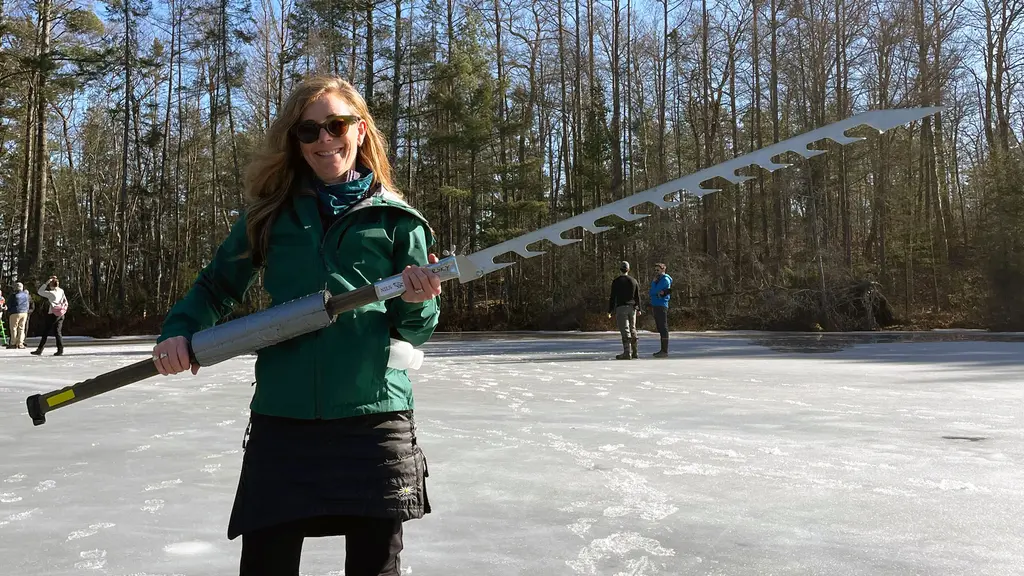
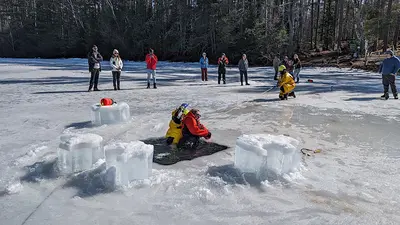
Researchers on the ice at Wisconsin’s Trout Lake
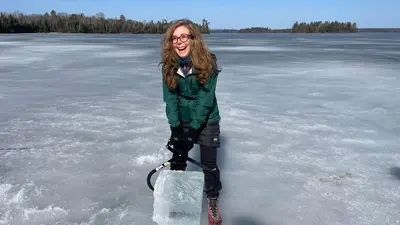
Hampton with ice block at Trout Lake
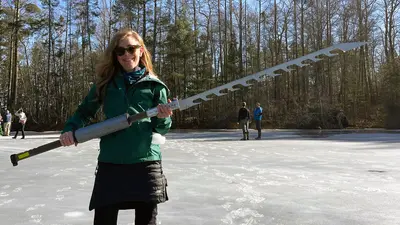
Hampton with a giant ice saw at Trout Lake
“Climate change means shorter duration of ice and often thinner ice and we need to understand what’s happening under there and how it affects our climate models,” Hampton explains. “But historically there hasn’t been much research on winter ecology, due to the dangers involved, so we’re investing in building up that knowledge on my team and with my collaborators, so that we know what’s going on during the cold months and how this period contributes to ecosystem health as a whole.”
The training session taught participants how to self-rescue if they fell through the ice and how to extend objects to others from a safe distance without putting additional people in harm’s way.
“I think everyone gained the confidence that they could survive and that’s always a huge part of knowing how to handle yourself in a fieldwork situation,” Hampton concludes.
